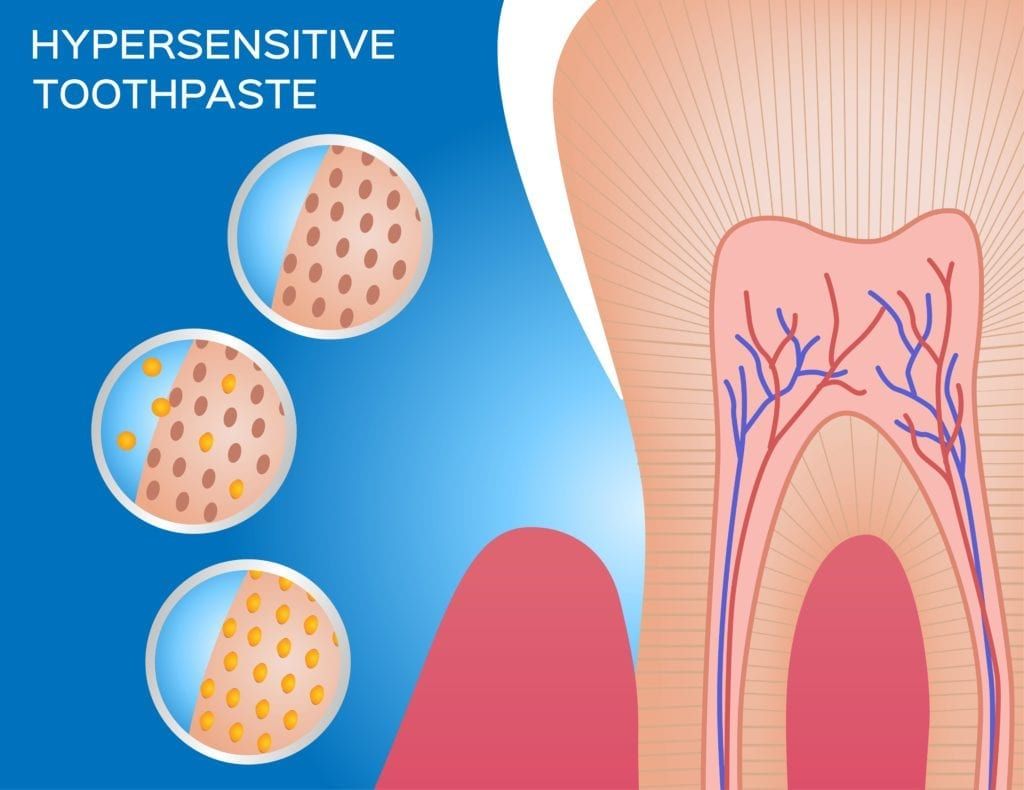Cold summer treats like popsicles and ice cream are perfect for snacking on those scorching summer days. Unless you have sensitive teeth of course. In that case, you may find yourself cringing while everyone else around you enjoys their cold treats. For as many as one out of eight American adults, tooth sensitivity is a harsh reality that can keep them from enjoying their favorite seasonal treats.

In the simplest sense, tooth sensitivity is pain that is felt whenever your teeth come in contact with anything that is hot, cold, or excessively sweet. In most cases, tooth sensitivity is caused by certain foods and beverages, however it can also be the result of air temperature as well. The amount of sensitivity you experience can vary from mild discomfort to severe pain, depending on its cause, location, and severity of the issue.
In many cases, tooth sensitivity can simply be a symptom of a larger dental issue, such as tooth decay, gum recession, pulp infection, cracked teeth, or damaged dental restorations. When one of these issues are responsible for tooth sensitivity, the best cure is generally to resolve these issues before pursuing any further treatments. In cases where tooth sensitivity is not attributed to any of these conditions then it may be attributed to worn enamel.
When the protective enamel layer wears down, then the underlying dentin layer is exposed. The dentin layer is porous and contains thousands of microscopic holes that lead to the pulp chamber where the tooth nerve resides. Without enough enamel, stimuli can travel through the dentin layer into the pulp layer, where it can irritate the nerve and cause the pain associated with tooth sensitivity.
If your dentist determines that worn enamel is the main cause of tooth sensitivity, then they may recommend one or more of the following:
Sensitivity Toothpaste

There are many different types of toothpaste, and one particular type is sensitivity toothpaste. Sensitivity toothpastes are formulated in such a way that they can help to reduce tooth sensitivity over time. This specialized toothpaste generally contains ingredients like potassium nitrate, stannous fluoride, or strontium chloride, which are able to fill in the microscopic holes in the dentin layer to prevent stimuli from irritating the nerve. Additionally, these toothpastes do not contain ingredients such as sodium lauryl sulfate (SLS), which has been shown to make tooth sensitivity worse. While there are many types of sensitivity toothpastes that are available over the counter, your dentist may also recommend a stronger prescription toothpaste for sensitivity.
Desensitizers
In addition to toothpaste for sensitive teeth, there are also desensitizers that can be applied to the surface of your teeth. The most common is fluoride varnish, which is usually applied after a preventative dental cleaning every six months. However, oxalate or Gluma are two other types of desensitizers that your dentist may recommend or prescribe to manage tooth sensitivity.
Cervical Restorations
In some cases, tooth sensitivity can also be caused by gum recession that exposes the tooth roots. To treat tooth sensitivity caused by gum recession, your dentist may recommend a cervical restoration, which is a restoration that covers the exposed tooth along the gum line. Cervical restorations are generally composed of composite resin that is bonded to the tooth surface. The composite resin then becomes the protective layer that protects exposed dentin and reduces tooth sensitivity.




